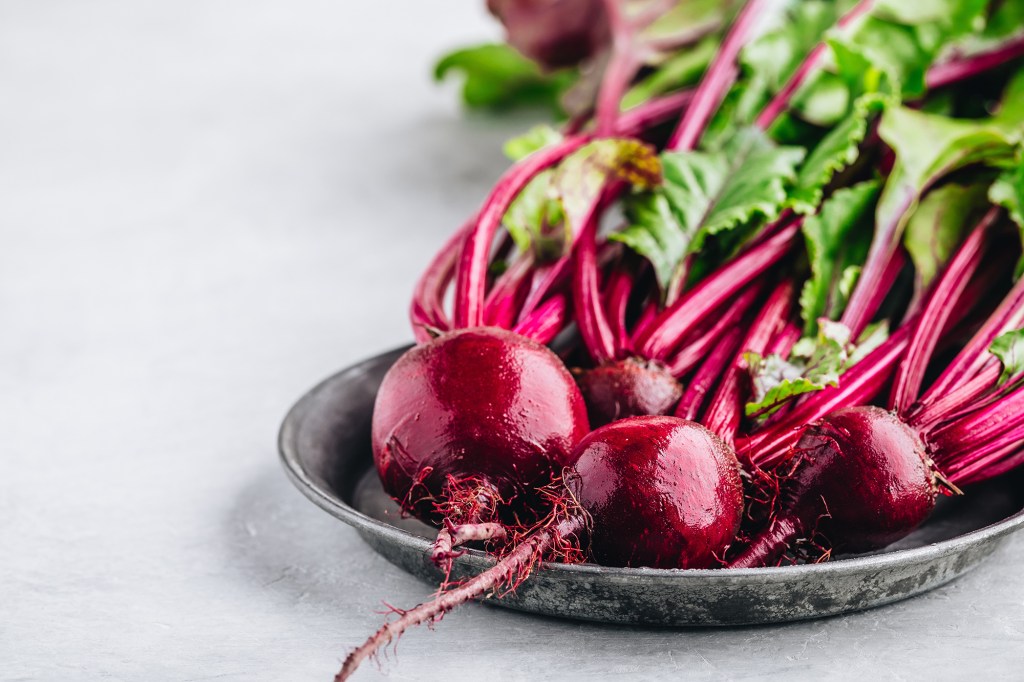Here’s What You Need To Know:
- Beets were originally grown in ancient Egypt, Greece, and Rome.
- They improve skin, blood, heart, digestive, and muscle health.
- They are high in fiber, folate, omega-6, vitamin C, vitamin A, and potassium.
- Beets contain betalain, which functions as an antioxidant and anti-inflammatory.
All About Beets
Beets were originally grown in ancient Egypt, Greece, and Rome. Once the Roman Empire came to power, civilians started eating the roots as well.
In the Middle Ages, beets were used to treat digestive and blood conditions. Although many middle-aged remedies were extremely unusual (blood-letting and mercury, yikes), they were onto something with beets. Read below to see all the benefits of this rugged red root.
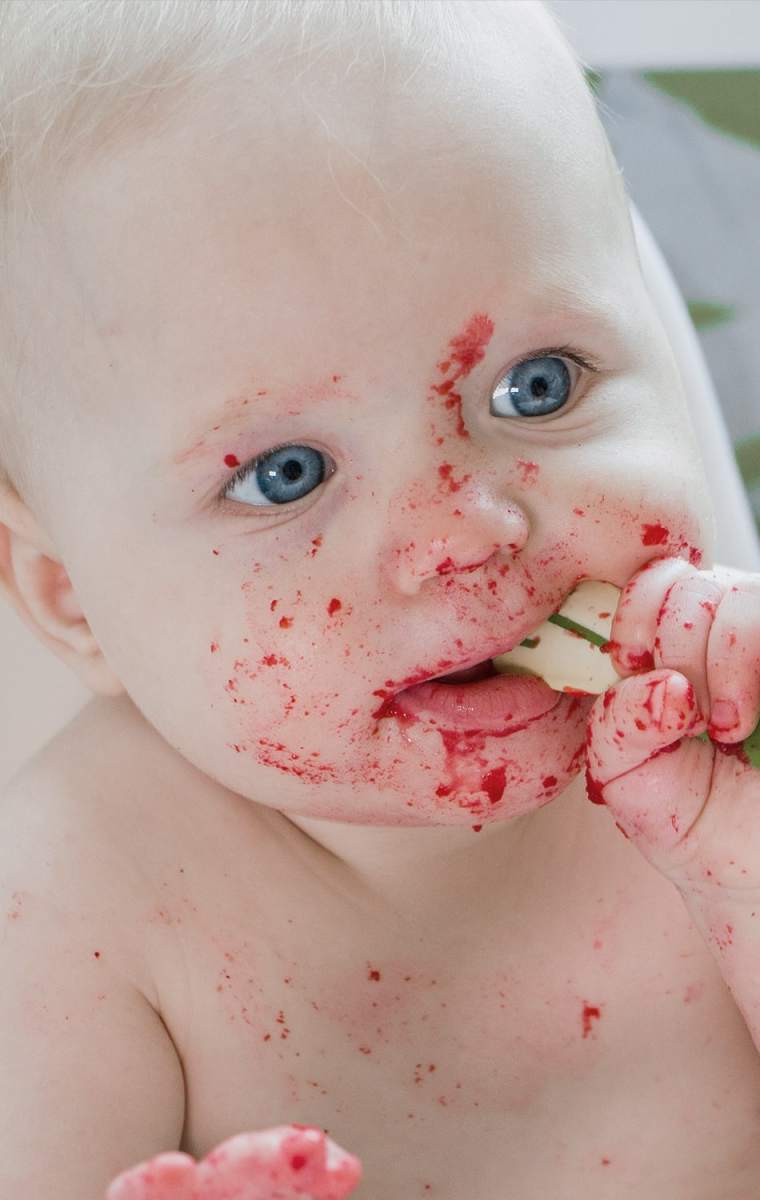
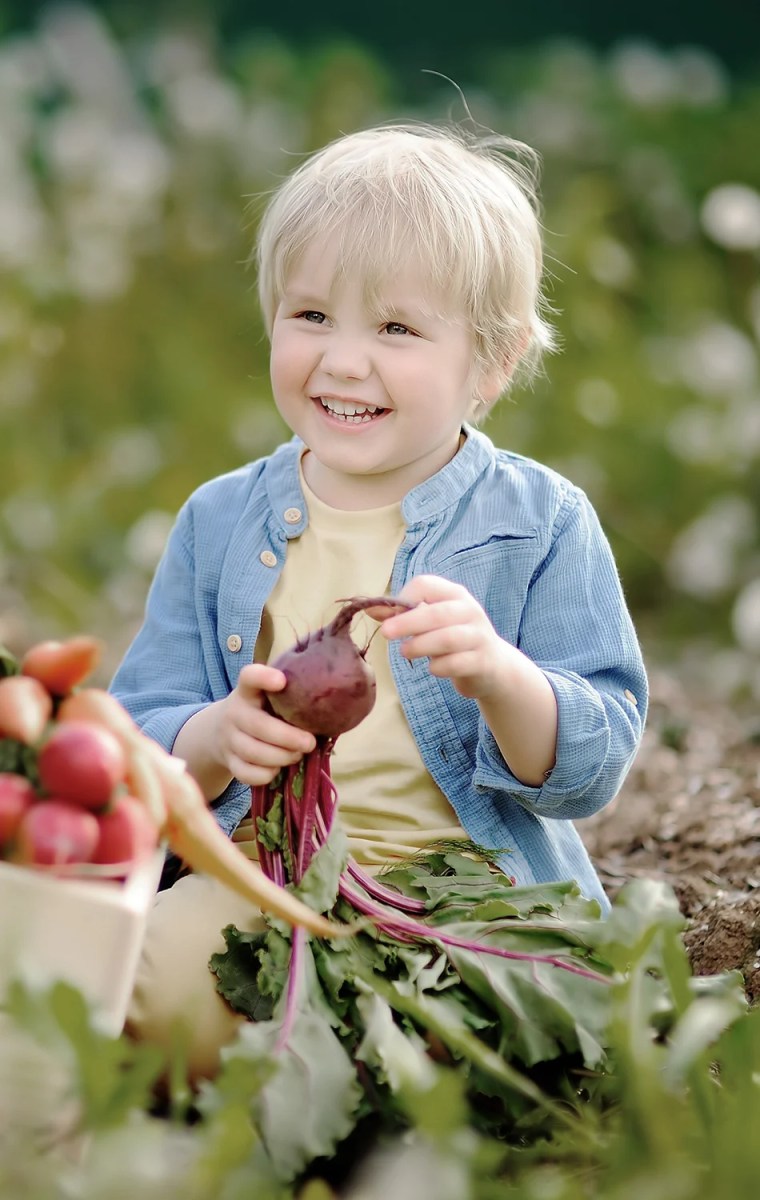
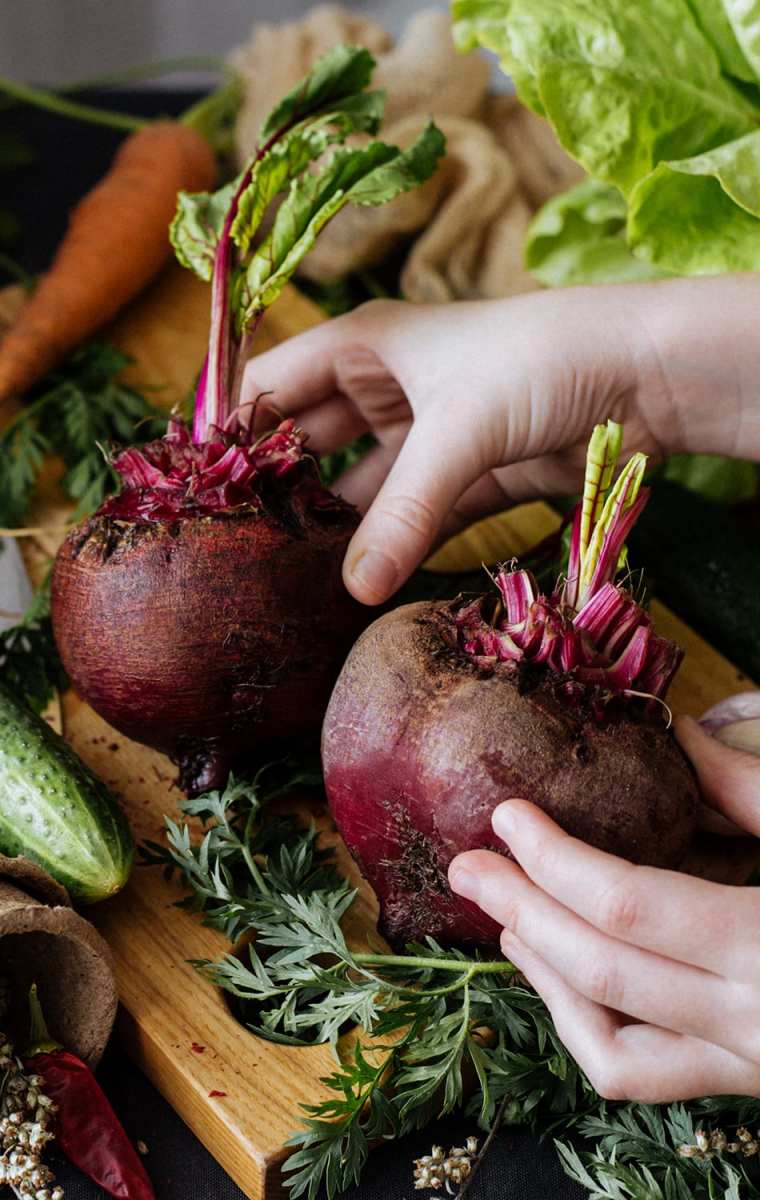
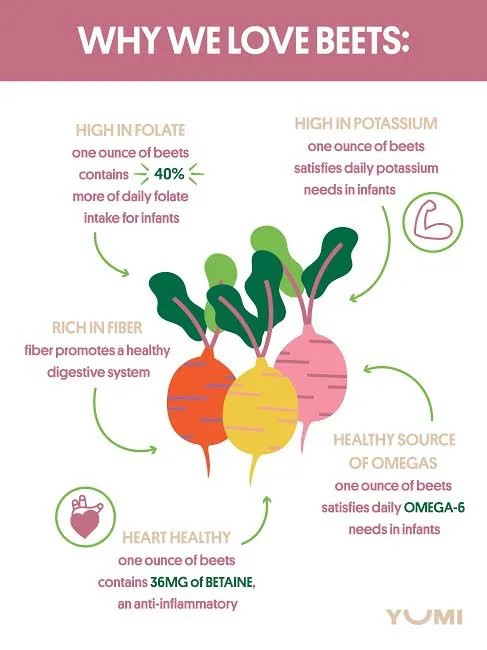
- Glowing Skin
Beets contain a type of phytonutrient known as betalain, which functions as an antioxidant and anti-inflammatory. Betalains, along with omega fatty acids, promote overall skin health and protect against cancer.
- Blood Health
Beets contain a compound known as glutathione, which is essential for liver and digestive organ detoxification. This contributes to overall blood and organ health.
- Happy Heart
Beets contain betaine and choline, which regulate inflammation and contribute to overall heart health. Beets are also high in folate, which helps maintain a healthy heart.
- Strong Muscles
Beets contain vitamin A, vitamin C, and potassium, which are proven to boost energy, grow muscles, and
What do I do if my baby doesn’t like beets?
Keep trying! As with any other food, it could take several tries for a baby to get used to the taste. Even if you don’t love beets, your baby may still like them. They are packed with nutrients, so it’s important to let your baby try them, regardless of your thoughts on the vegetable.
My baby’s BMs become reddish in color and their pee becomes light pink after they eat beets. Should I be worried?
Don’t worry— this is completely normal! The red pigment found in beets can cause discoloration in BMs and urine. This can occur in babies, children, and adults.
How can my little one enjoy beets?
You can roast up some beets with a bit of salt and pepper, eat them as a part of a salad, or in a Borscht. The easiest way would be to get them a jar of Yumi and scoop away!
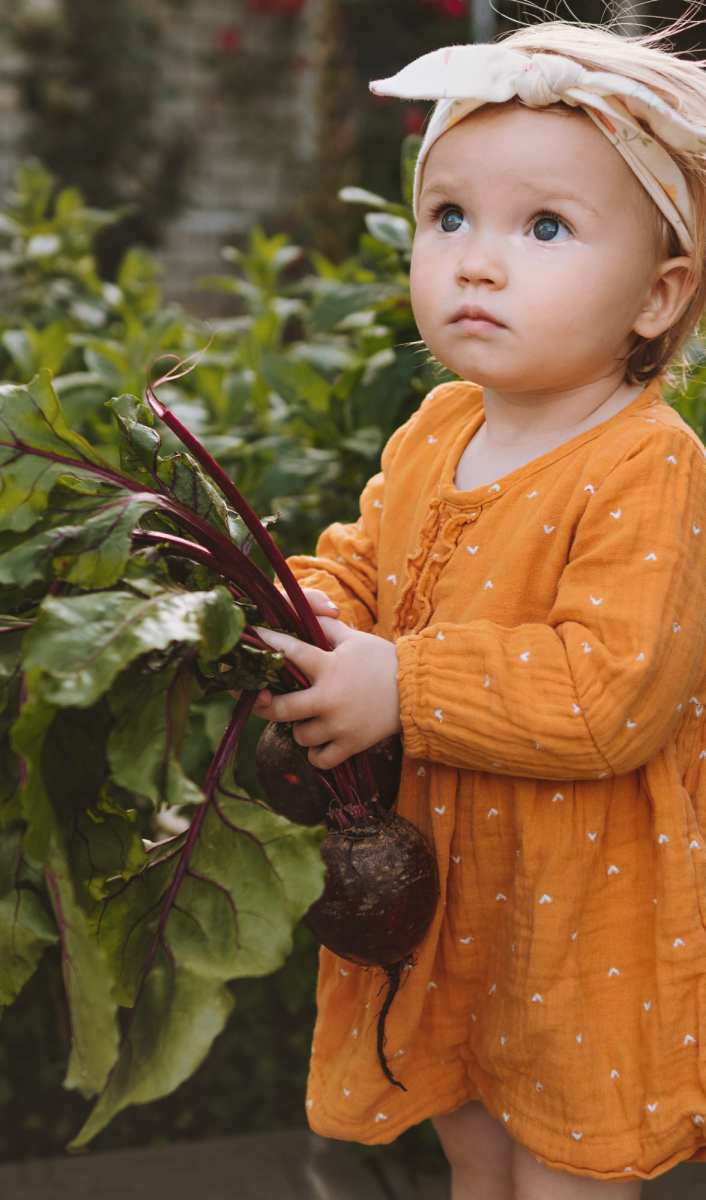
Summary
Beets are nature’s candy. They are full of nutrients, including fiber, folate, omega-6, vitamin C, vitamin A, and potassium.
They are also packed with antioxidants and anti-inflammatories that support the liver and fight off free radicals.
